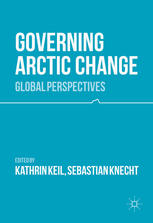

Most ebook files are in PDF format, so you can easily read them using various software such as Foxit Reader or directly on the Google Chrome browser.
Some ebook files are released by publishers in other formats such as .awz, .mobi, .epub, .fb2, etc. You may need to install specific software to read these formats on mobile/PC, such as Calibre.
Please read the tutorial at this link: https://ebookbell.com/faq
We offer FREE conversion to the popular formats you request; however, this may take some time. Therefore, right after payment, please email us, and we will try to provide the service as quickly as possible.
For some exceptional file formats or broken links (if any), please refrain from opening any disputes. Instead, email us first, and we will try to assist within a maximum of 6 hours.
EbookBell Team

4.8
64 reviewsThis volume explores the governance of the transforming Arctic from an international perspective. Leading and emerging scholars in Arctic research investigate the international causes and consequences of contemporary Arctic developments, and assess how both state and non-state actors respond to crucial problems for the global community. Long treated as a remote and isolated region, climate change and economic prospects have put the Arctic at the forefront of political agendas from the local to the global level, and this book tackles the variety of involved actors, institutional politics, relevant policy issues, as well as political imaginaries related to a globalizing Arctic. It covers new institutional forms of various stakeholder engagement on multiple levels, governance strategies to combat climate change that affect the Arctic region sooner and more strongly than other regions, the pros and cons of Arctic resource development for the region and beyond, and local and trans-boundary pollution concerns. Given the growing relevance of the Arctic to international environmental, energy and security politics, the volume helps to explain how the region is governed in times of global nexuses, multi-level politics and multi-stakeholderism.